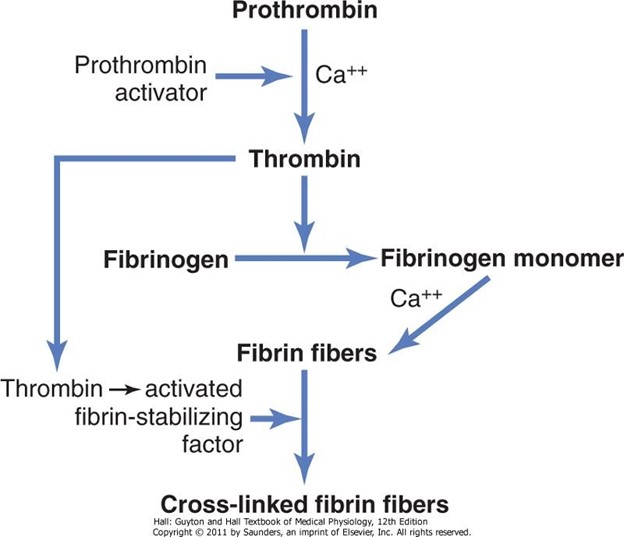The basic event in the formation of a blood clot is the change of:
Thrombin to prothrombin.
Fibrinogen to fibrin.
Vitamin K to prothrombin.
Fibrin to fibrinogen.
Answer and Rationale
The Correct Answer is B.

This is because fibrinogen is a soluble protein in the blood plasma that is converted to insoluble fibrin strands by the enzyme thrombin during blood clotting. Fibrin forms a mesh-like network that traps platelets and other blood cells to form a clot.
Choice A is wrong because thrombin is not converted to prothrombin, but rather prothrombin is converted to thrombin by another enzyme called prothrombinase.
Choice C is wrong because vitamin K is not converted to prothrombin, but rather vitamin K is required for the synthesis of prothrombin and other clotting factors in the liver.
Choice D is wrong because fibrin is not converted to fibrinogen, but rather fibrinogen is converted to fibrin as explained above.
Normal ranges of fibrinogen in the blood are 200 to 400 mg/dL.
Normal ranges of prothrombin time (a measure of how long it takes blood to clot) are 11 to
13.5 seconds.
Acess all questions on ExamGateway's Free Nursing TestBank